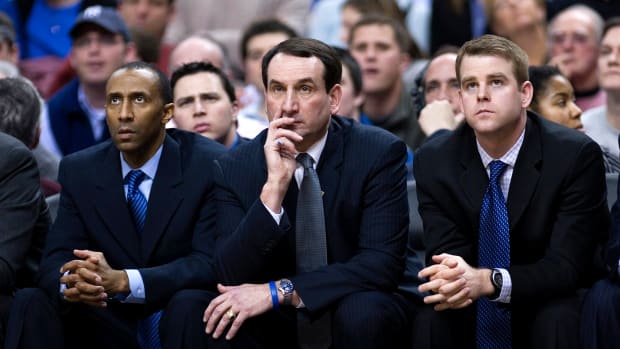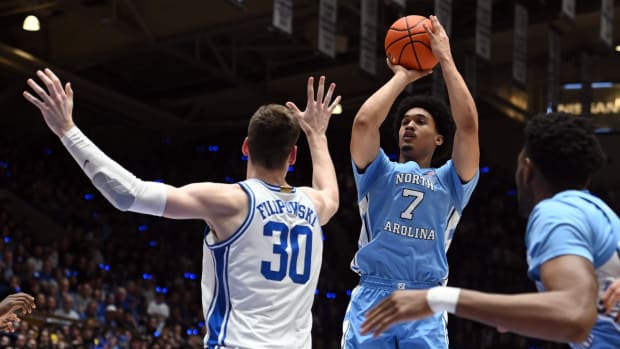Jeff Capel and Family Fund ALS Breakthrough at Duke
Jeff Capel III was a Duke assistant coach in 2017 when his father, former basketball coach Jeff Capel Jr., was diagnosed with ALS. When Capel III announced his father’s diagnosis in a heartfelt first-person story on The Players Tribune, he also announced that he and his family were going to help fight for a cure.
“We’ve partnered with the Duke ALS Clinic in Durham, NC to establish the Jeff Capel Jr. ALS Research Fund,” he wrote.
Three years later, much has changed. The elder Capel was taken by the disease near the end of 2017. Capel III left Duke in 2018 to become head coach at Pitt. While he may be gone from the area, the impact of the Capel family is still being felt at Duke, and, hopefully, will soon be felt worldwide.
Using money from the Jeff Capel Jr. ALS Research Fund, Dr. Richard Bedlack, director of the Duke ALS Clinic, has uncovered a drug that shows signs of benefitting patients suffering from the degenerative nerve disease also known as Lou Gehrig’s Disease.
Ironically, for a family so deeply involved in competitive sports, the drug the Capel family’s fund is supporting, clenbuterol, is perhaps best known as a PED. Athletes in the U.S. are banned from using it because it stimulates growth factors, allowing muscles to create more protein.
“Muscles become bigger, and in some cases stronger.” Bedlack said in a story on Duke Neurology’s web site. “That’s cheating in sports, but that’s exactly what we want to happen to our patients with ALS. We want their muscles to get bigger and stronger.”
Early results have shown promise. A study with mice showed that use of the drug resulted in improved muscle strength, and 16 ALS patients in Italy took the drug for six months and had improvements in muscle strength and breathing.
“To my knowledge, that’s never happened in any ALS trial before,” Bedlack told Duke Neurology. “Usually we’re excited if the rate of decline on a drug is a little slower than we would expect, but to actually see improvements in strength and breathing measurements over six months in a group of people with ALS is really extraordinary.”
Funded by the Capels, Bedlack began a trial at Duke in February that will try to replicate the results seen in Italy with 25 patients. The coronavirus outbreak has slowed his ability to enroll patients and will likely delay the results, but he’s still hopeful. And he credits the generosity of Capel and his family for helping take on the fight personally.
“If you want to take a giant leap and see if you can actually do something that’s never happened before, which is to reverse ALS and use a design that’s very unusual, you probably have to use your own money to get that funded,” Bedlack said.




